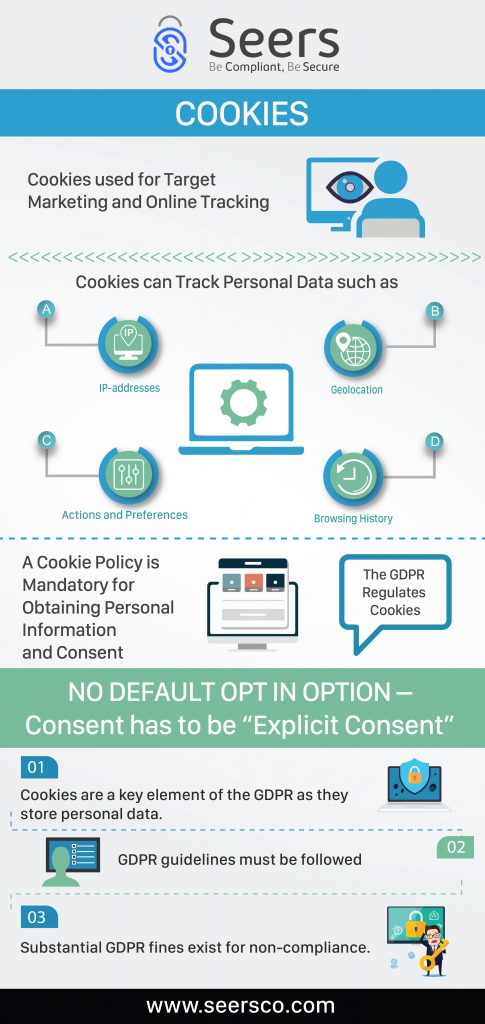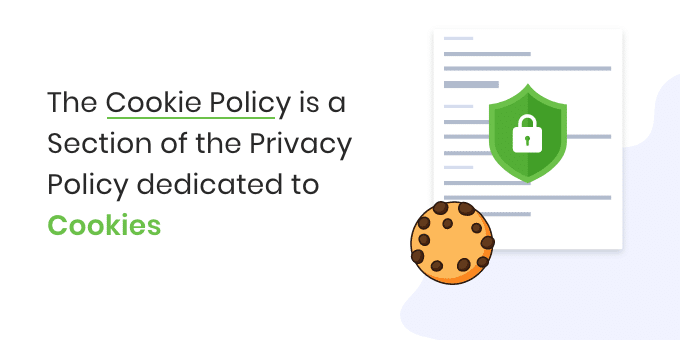What Are Cookies?
A cookie is essentially a small file inside a user’s computer designed to store data related to a particular user on a website. Website browsers use cookies to access a user’s computer, allowing servers to show or deliver a website page tailored to the user’s interests based on previous website usage. In some cases, the page itself contains a script that aligns with the data present in the web cookie, capable of transferring the information from one website to another relevant website or page.
In other cases, the page itself contains a script that aligns with the data present in the web cookie and so it is capable of transferring the information from one website to another relevant website or page.
What Information Do Cookies Store?
A web cookie, stored on the user’s computer, varies in storage format depending on the browser. For example, Internet Explorer or Firefox may store cookies as single files. Originally, cookies aimed to store information to enhance the user’s experience on the website. Over time, their use has expanded to include tracking user browsing patterns for targeted marketing.
Websites now explicitly state the purpose of storing cookies, and most have a cookie policy. The cookie policy generator has become a crucial component of the General Data Protection Regulation (GDPR), marking a significant advance in data protection.
By storing information in the website cookie, it can improve the user’s experience by retaining useful website settings such as:
- The location of the user
- preferred language
- Preferred colour scheme
- Preferred homepage layout
Cookies allow users to access websites customised to their preferences by storing their previous settings in the cookie file. A wide range of information can be stored in cookies, making it essential for users to check a website’s cookie policy to understand what type of information is being stored.

What Personal Data Do Cookies Store?
Cookies can store information that easily identifies an individual and is thus classified as personal data. This information may include:
- Name
- Address
- Mobile or telephone number
- Date of birth
Creating a cookie
When a user accesses a website, the website looks for an existing cookie file. If the cookie exists on the user’s device, it provides a customised website experience. If no cookie exists or if the user has cleared their cookies, the website identifies the visitor as a first-time user. The creation or updating of cookies occurs automatically in the background, usually without the user’s awareness.
Controlling Cookies
Users can change their browser settings to have better control over cookies by:
- Ensuring the browser always asks for confirmation before allowing a cookie to be created or updated via a cookie consent banner.
- Deleting all cookies as soon as the web browser closes.
- Reviewing each website’s cookie policy.
Importance of a Cookie Policy
Including a cookie policy on a website is essential, especially for compliance with the General Data Protection Regulation (GDPR). A well-written GDPR cookie policy can help a company in several ways:
- Fetching personal information of the user.
- Getting consent from the user via a cookie consent banner.
- Improving the user experience on the website.
- Advertising products or services relevant to the user’s interests.
- Streamlining their on-page experiences based on their particular interests.
Before the GDPR, a simple cookie policy sufficed to explain cookie usage. Post-GDPR, it is mandatory for websites to provide a cookie policy that explicitly states how cookies are used for storing user information. Users must provide their consent via a cookie consent banner, accepting how their information is used and processed through cookies to comply with the GDPR.
GDPR and cookies
The GDPR provides updated regulations to:
- Protect the personal information of individuals.
- Outline how personal information is used by businesses.
- Define individual rights of the users.
- Specify the kind of consent required to acquire or use personal data.
Cookies, which gather data about users through their devices, fall under the umbrella of personal data, making them a key element of the GDPR. Businesses must fully understand how their websites store personal data to avoid substantial GDPR fines for non-compliance.
Understanding GDPR Cookie Compliance
GDPR cookie compliance mandates that websites in the EU obtain explicit user consent before placing cookies on their devices. This regulation ensures that users are informed about the data collected and its usage, fostering transparency and trust. Businesses must implement clear consent mechanisms and maintain updated privacy policies to avoid hefty fines and enhance data protection. Achieving cookie compliance is essential for safe user privacy and meeting legal requirements.
Can Cookies Slow Down Your Computer?
Cookie creation and updates have little or no effect on computer performance as very little information is stored in the cookie. A browser cookie improves the browsing experience, but the GDPR has made it more challenging for businesses to use cookies as before. Custom information stored in a cookie may now need to be stored in user profiles, accessible only when users log into each website and provide consent via a cookie consent banner.
Making Your Cookie Policy GDPR Compliant
To make your cookie policy GDPR compliant, follow these guidelines:
- Stop gathering user data through cookies or find a legal way to gather and process it.
- Implied consent is no longer valid post-GDPR. A common message like “By using this website, you accept cookies” is insufficient.
- Users must opt-in and provide explicit consent.
- Opting in cannot be the default option.
- Users must explicitly select to opt-in.
- Default opt-in is not acceptable under GDPR.
- Use a GDPR-compliant cookie consent management solution to get user consent.
Navigating the Complexities of GDPR Cookie Policies
Navigating the complexities of GDPR cookie policies is crucial for any business operating online, especially those with users in the European Union (EU) and the European Economic Area (EEA). GDPR cookie policies protect users’ privacy and regulate how cookies are used to collect and process personal information.
Benefits of Compliance With Seers
Compliance with Seers’ GDPR cookie policies helps build users’ trust by showing a commitment to data protection and privacy. For businesses, it reduces the risks of fines and legal issues while encouraging a positive reputation and customer loyalty.
Key Factors of Future Trends in GDPR Cookie Policies
Potential Developments in Regulations
Future developments may include updates to GDPR guidelines to address emerging technologies and evolving privacy concerns. Businesses should stay informed about these developments to maintain compliance and adjust their cookie policies accordingly.
Technological Advancements and Their Impact
Technological advancements such as AI and machine learning are reshaping how cookies are utilised and regulated. These innovations present opportunities and challenges in balancing users’ privacy with innovative digital experiences.
- Enhanced User Personalisation: AI-driven insights may allow for more tailored cookie usage, improving user experiences while respecting privacy preferences.
- Stricter Regulation Compliance: Future GDPR revisions could introduce stricter guidelines on consent management and data handling, impacting how cookies are deployed and managed.
- Integration with Privacy by Design: Innovations in technology could promote the integration of privacy principles directly into cookie usage, ensuring compliance from the ground up.
- Ethical Considerations: As AI evolves, ethical considerations around data collection and user consent may influence future GDPR updates, shaping cookie policies to prioritise user trust and transparency.
Implementing GDPR Cookie Policies
To comply with GDPR cookie policies, every website owner should:
- Conduct a thorough audit to identify the types and purposes of cookies used.
- Implement mechanisms for obtaining and managing user consent efficiently.
- Maintain transparent cookie disclosures through privacy policies and cookie notices.
Final Thoughts
All online organisations, especially those with an EU or EEA presence, must adhere to the cookie rules. Ensuring compliance has multiple benefits, including safeguarding user privacy, establishing trust, and enhancing the organisation’s reputation.
By following the rules, which include being transparent about cookie usage and obtaining explicit user agreements, organisations can avoid legal trouble and hefty fines. Adhering to these guidelines ensures compliance with GDPR cookie policies, protects users’ data, and enhances their overall web experience. Ensuring a clear and accessible cookie popup GDPR notification and requiring users to explicitly gdpr accept cookie consent further strengthens compliance and user trust

